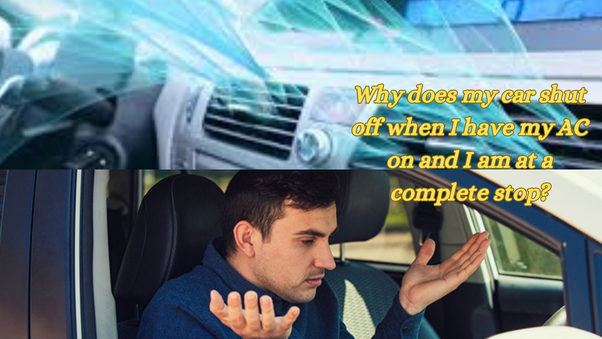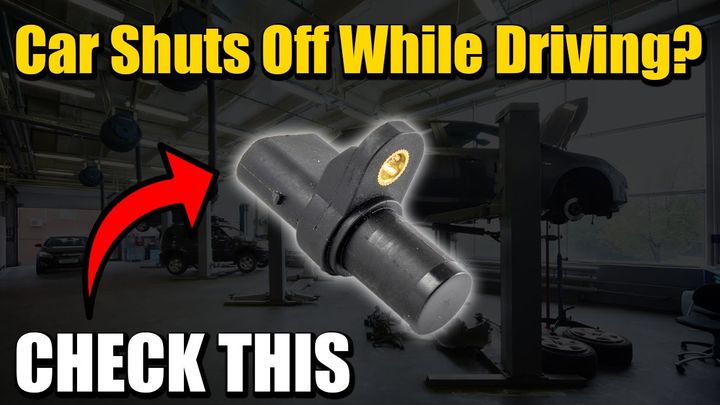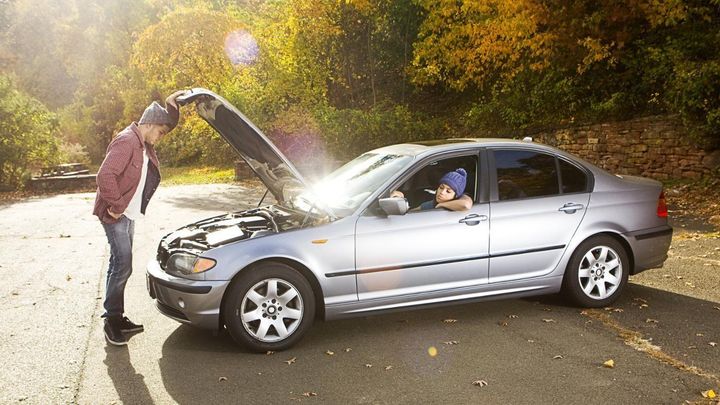


The air conditioning (AC) system in a car is designed to provide cool and comfortable air inside the cabin. However, in some cases, turning on the AC can cause the engine to stall or shut off unexpectedly. This issue can be frustrating and potentially dangerous, especially when driving in hot weather conditions. Understanding the causes and potential solutions is crucial for addressing this problem effectively.

Before delving into the specifics, it's essential to understand how the AC system interacts with your vehicle's engine. The compressor, which is the heart of the AC system, is driven by the engine's serpentine belt. When you turn on the AC, the compressor engages, placing an additional load on the engine. This extra load can strain the engine, especially if there are underlying issues with the AC system or related components.
Over the years, I've identified several common causes that can lead to a car shutting off when the AC is turned on. Let's explore these culprits:
| Cause | Explanation |
|---|---|
| Low Refrigerant Levels | The AC system is a closed loop filled with refrigerant, a specialized fluid that facilitates the cooling process. Leaks can develop over time, causing a drop in refrigerant levels. When the refrigerant level is low, the compressor has to work harder to maintain the desired cooling, putting extra strain on the engine. This increased load can potentially cause the engine to stall when the AC is engaged. |
| Faulty Compressor or Compressor Clutch | The compressor is the heart of the AC system, responsible for compressing the refrigerant. If the compressor seizes due to lack of lubrication or mechanical failure, it can stall the engine when the AC is turned on due to the sudden load. Similarly, a faulty compressor clutch, which engages and disengages the compressor, can also lead to stalling issues. |
| Electrical Problems | Electrical issues, such as blown fuses, bad relays, or wiring problems, can prevent the compressor clutch from engaging properly or disrupt signals to the engine computer. These electrical glitches can cause the engine to stall when the AC load is applied. |
| Clogged Components | A clogged expansion valve or refrigerant lines can restrict the flow of refrigerant, increasing pressure and load on the compressor when the AC is on. This additional strain can potentially cause the engine to stall. |
| Idle Air Control Valve or Throttle Body Issues | If the idle air control valve or throttle body is stuck or not functioning properly, it may not compensate for the extra load from the AC compressor, causing the engine to stall. |
| Worn Serpentine Belt | A worn or slipping serpentine belt can cause the compressor to bind when engaged, putting extra load on the engine and potentially causing it to stall. |
As a professional mechanic, I follow a systematic approach to diagnose and resolve AC-related stalling issues. Here are the steps I typically take:

The first step is to visually inspect the AC system for any signs of leaks or damage. I use specialized leak detection tools, such as UV dye or electronic leak detectors, to pinpoint the source of any refrigerant leaks.
Next, I check for any blown fuses or corroded wiring related to the AC system. I also use a diagnostic scan tool to check for trouble codes related to the idle air control, throttle body, or AC system components.
To identify potential clogs or restrictions in the AC system, I perform a cooling system pressure test. This helps me determine if the expansion valve or refrigerant lines need to be replaced.
Based on the diagnosis, I proceed with the necessary repairs or replacements. This may involve:
Repairing refrigerant leaks
Replacing the compressor or compressor clutch
Addressing electrical issues
Servicing the idle air control valve or throttle body
Serpentine belt replacement (in some cases)
While repairs can be costly, preventive maintenance can go a long way in avoiding AC-related stalling issues. Here are some tips and cost estimates to keep in mind
I recommend having your vehicle's AC system inspected and serviced annually by a professional mechanic. This preventive measure can help identify potential issues before they escalate and cause stalling problems.
Regularly checking and maintaining the proper refrigerant levels in your AC system is crucial. If the levels are low, I recommend having the system recharged to prevent excessive strain on the compressor.
Replacing the cabin air filter as recommended by the manufacturer can improve the efficiency of your AC system and prevent potential clogs or restrictions.
| Repair | Estimated Cost |
|---|---|
| Refrigerant leak repair | $100 - $500 |
| Compressor or clutch replacement | $400 - $800 |
| Electrical diagnosis and repair | $100 - $300 |
| Expansion valve or line replacement | $200 - $600 |
| Idle air control valve or throttle body service | $100 - $300 |
| Serpentine belt replacement | $100 - $200 |
Keep in mind that these estimates are approximate, and the actual cost may vary based on labor rates in your area and the extent of repairs needed.
As a mechanic, I understand the frustration and discomfort that comes with a car shutting off when the AC is turned on. However, by understanding the potential causes and taking preventive measures, you can minimize the risk of encountering this issue. If you do experience stalling or shutting off when engaging the AC, don't hesitate to seek professional assistance. With proper diagnosis and repairs, your vehicle's AC system can be restored to optimal performance, ensuring a comfortable and reliable driving experience, even on the hottest summer days.
There are several potential causes, including low refrigerant levels, faulty compressor or compressor clutch, electrical issues, clogged components, idle air control valve or throttle body problems, and a worn serpentine belt.
When the AC is turned on, the compressor engages and places an additional load on the engine, potentially straining it and causing stalling if there are underlying issues.
The compressor is responsible for compressing the refrigerant, and if it seizes or fails, it can cause the engine to stall when the AC is turned on due to the sudden load.
When refrigerant levels are low, the compressor has to work harder to maintain cooling, putting extra strain on the engine, which can potentially cause stalling when the AC is engaged.
Electrical issues like blown fuses, bad relays, or wiring problems can prevent the compressor clutch from engaging properly or disrupt signals to the engine computer, leading to stalling.
The idle air control valve and throttle body help compensate for the extra load from the AC compressor. If they are not functioning properly, the engine may not be able to handle the load and stall.
A worn or slipping serpentine belt can cause the compressor to bind when engaged, putting extra load on the engine and potentially causing it to stall.
The first step is to visually inspect the AC system for any signs of leaks or damage and use specialized tools to detect refrigerant leaks.
Diagnostic procedures may include electrical diagnosis using a scan tool, pressure testing to identify clogs or restrictions, and component testing or replacement as needed.
Regular AC system inspections and service, refrigerant level checks and recharging, and cabin air filter replacement can help prevent stalling issues related to the AC system.

Sarah isn't your average gearhead. With a double major in Mechanical Engineering and Automotive Technology, she dived straight into the world of car repair. After 15 years of turning wrenches at dealerships and independent shops, Sarah joined MICDOT to share her expertise and passion for making cars run like new. Her in-depth knowledge and knack for explaining complex issues in simple terms make her a valuable asset to our team.












